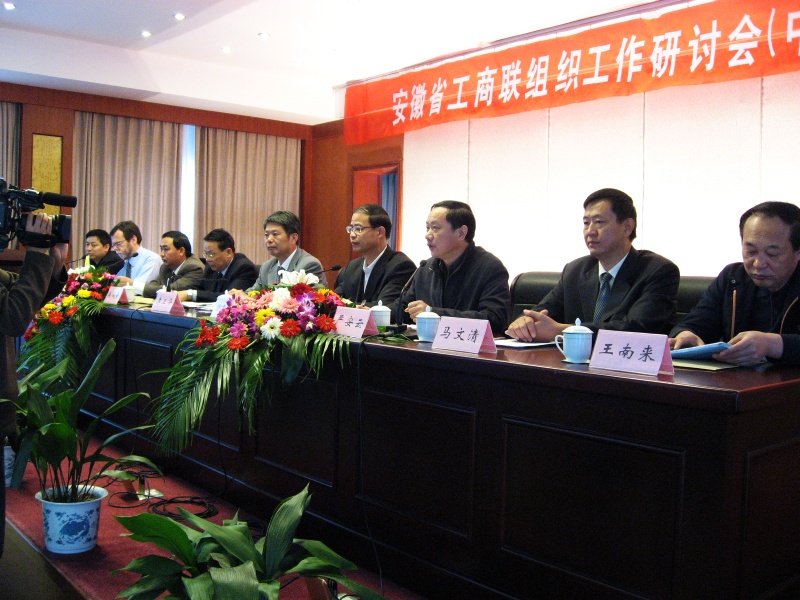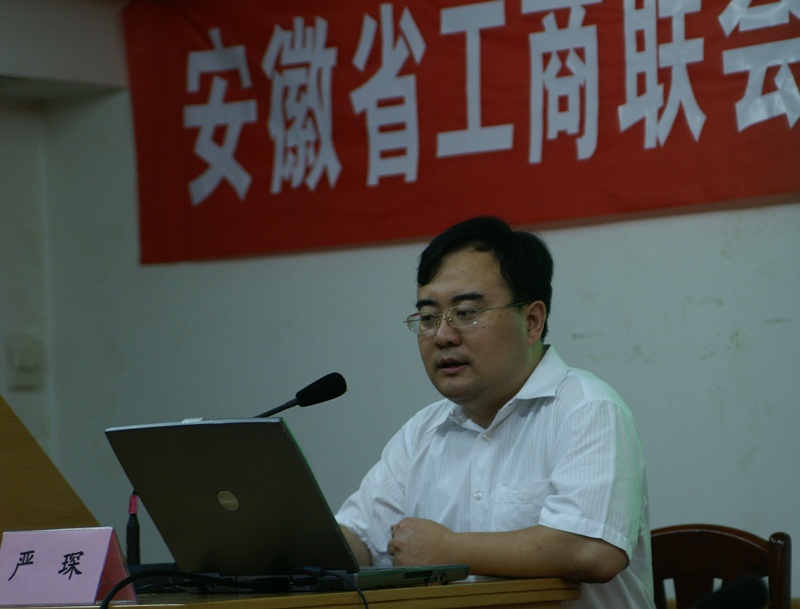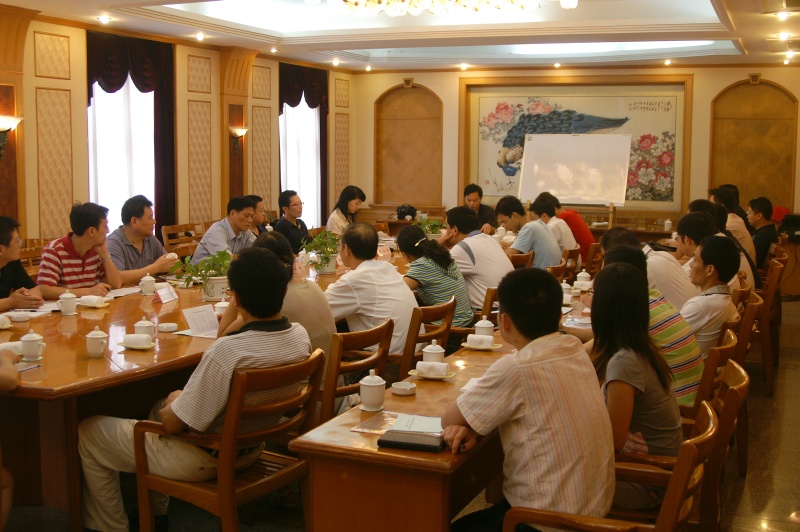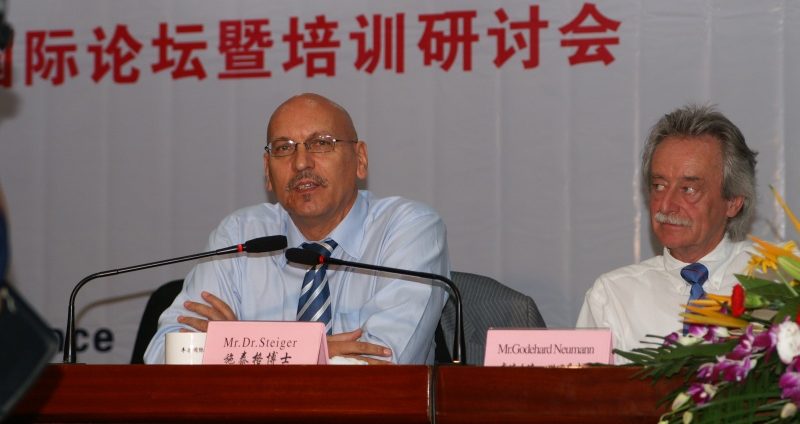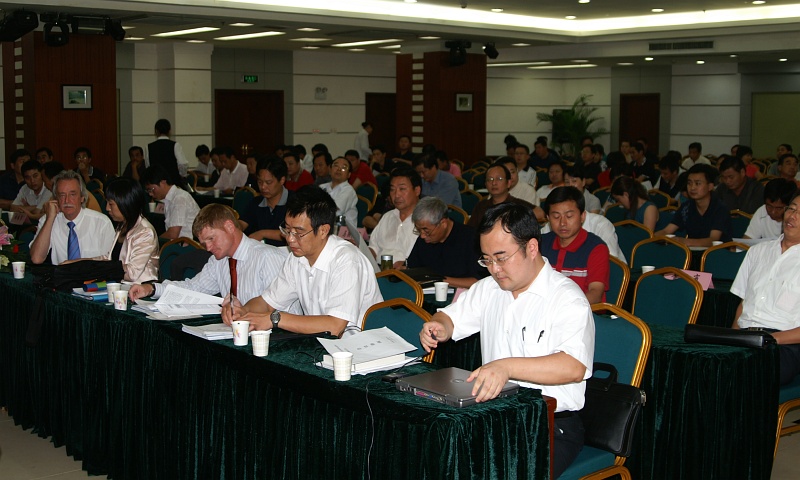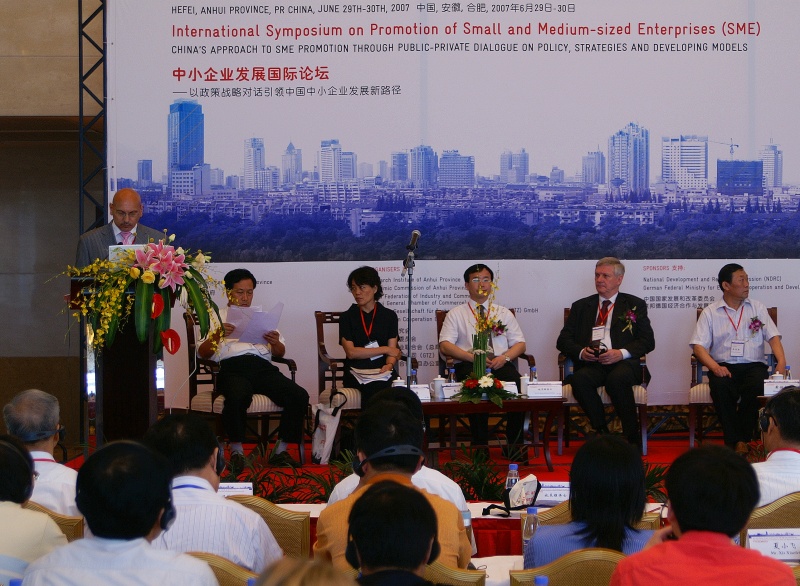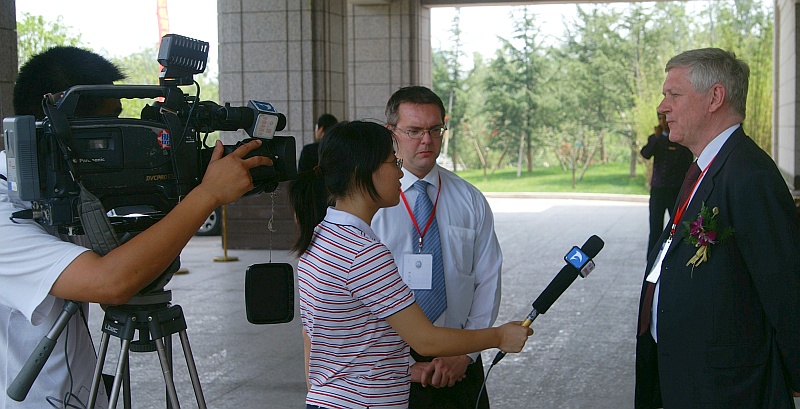New CCI Leadership Joins Entrepreneurs’ Delegation
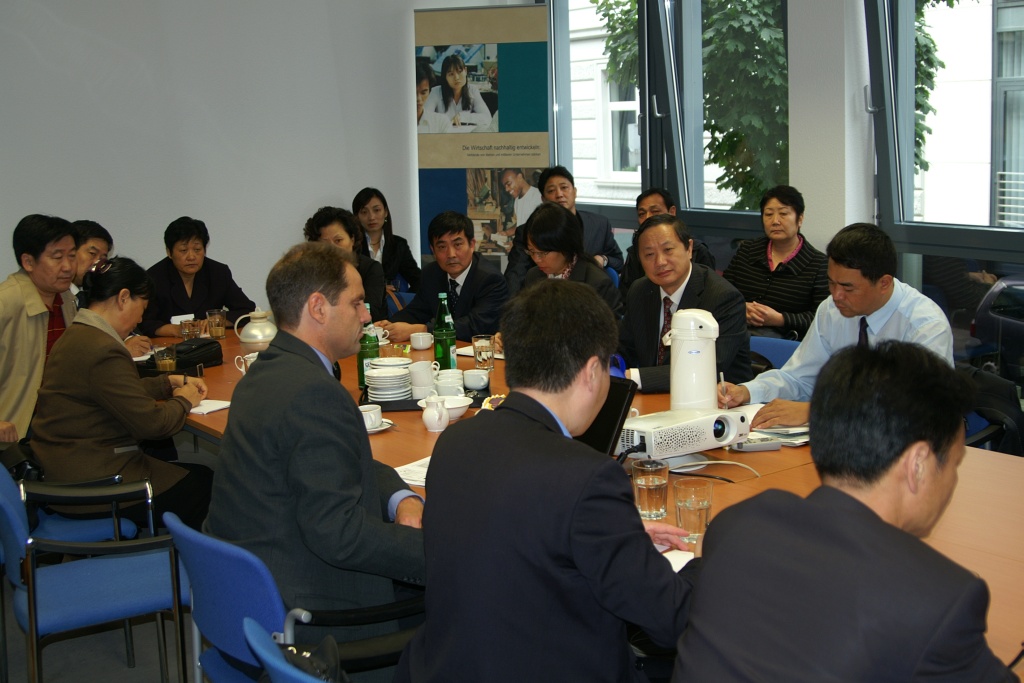
Discussion at SEQUA headquarters
The newly elected leaders of chambers of commerce and industry (CCI) in the Chinese province of Anhui had the opportunity to better understand the daily work of their colleagues in Germany, Austria, Belgium, and France during a fact-finding mission from September 16 to 26, 2007. SEQUA gGmbH organized the mission within the Sino-German SME Project. A number of member entrepreneurs of the Chinese chambers accompanied the elected and full-time leaders.
At Darmstadt CCI, Martin Proba, Sonja Müller and Jens-Uwe Lalk informed the group about CCI sector development policies, using the Automotive Cluster Rhein-Main-Neckar as an example, and about CCI international work, using the China Competence Center of Darmstadt and Frankfurt CCI as the other example.
The group travelled to Bonn on the same day, to learn about chamber models world wide and about the structure and work of the leading German business membership organizations. Dr. Ralf Meier of SEQUA gGmbH presented this introduction. SEQUA shareholders are the Association of German Chambers of Commerce and Industry, the Association of German Chambers of Skilled Crafts, the Federation of German Industry, and the Federation of German Employers Associations. SEQUA implements projects to support capacity building in business membership organizations (BMO) in numerous developing countries.
In Bruxelles, General Manager Wouter Van Gulck of the Belgium Federation of Chambers of Commerce and Industry presented the structure of his chambers. Different from their neighboring countries, Belgian CCI are based on voluntary membership. Van Gulck also provided the opportunity of discussions with representatives of the Bruxelles City Chamber and the Belgian-Chinese Chamber of Commerce. His Chinese guests were surprised to find the economic clout of regional root chambers such as Bruxelles and East Flanders stronger than the national “headquarters”.
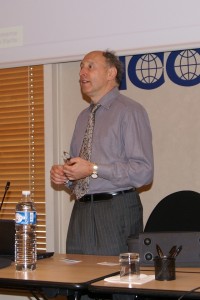
Georges Fischer, CCIP
Following a briefing on the International Chamber of Commerce in Paris by Hélène Kolmodin, Georges Fischer introduced both the World Chambers Federation, and the work, structures and strategies of the Paris City CCI. He also explained the latest developments of a virtual chamber: “CCIP in a de-materialized world”. Delegation leader Yan Anyun found similarities between French and Chinese CCI, both closely linked with the state organs.
Back in Germany, the group visited the largest CCI in number of members, the Munich and Upper Bavaria IHK. Johannes Huber and Christine von Nell provided insights to typical chamber tasks and how to achieve them. They showed examples on the chamber’s facilitating of members’ business contacts with companies abroad – including in China. Huber handed a CD-ROM with an enterprise database “Key Technologies in Bavaria” to each visitor, and encouraged the entrepreneurs from Anhui to take initiative contacting them.
 The mission was completed with an outline of the Austrian chamber structure, provided by Gregor Leitner of the Wirtschaftskammer Tirol in Innsbruck. He explained the organization and legal framework of his CCI as well as some differences to the German CCI: (1) in Austria, “Economic Chambers” include industry, commerce, and skilled crafts; (2) they represent employers’ interests in negotiations with the labor unions on tariff contracts.
The mission was completed with an outline of the Austrian chamber structure, provided by Gregor Leitner of the Wirtschaftskammer Tirol in Innsbruck. He explained the organization and legal framework of his CCI as well as some differences to the German CCI: (1) in Austria, “Economic Chambers” include industry, commerce, and skilled crafts; (2) they represent employers’ interests in negotiations with the labor unions on tariff contracts.
The project is preparing a follow-up symposium on CCI management and structure for the new generation of leaders in Anhui, scheduled for December 10 and 11, 2007, in Hefei. Topics will include practical management tools, time management, media relations, quality management, team leadership, and more. Two Anhui workshops on building sectoral chambers and chamber legal services are scheduled in October, 2007.
